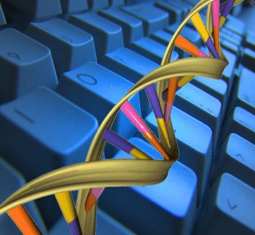Traditional Chinese Medicine with Scientific Base
Traditional Chinese Medicine with Scientific Base
The centuries-old practice of traditional Chinese medicine is undergoing a digital overhaul.
Researchers at the University of Sydney are using computer science to investigate the efficacy of herbal treatments widely used in China to treat common ailments. The long-term goal is to build a database that health-care providers could use to help them decide if such treatments would benefit their patients.

Herbs are widely used to treat various ailments.
Many Western doctors are leery of traditional Chinese medicine, and other alternatives to modern pharmaceuticals and medical procedures, despite growing interest among their patients. And many governments, sharing the doctors' worries about the safety of some treatments and the expertise of practitioners, are tightening regulation of traditional Chinese medicine. In the European Union, for instance, all sales of unlicensed herbal medicines will be banned after April 30.

Bioinformatics, the application of computer science to molecular biology.
Central to the program is bioinformatics, the application of computer science to molecular biology. The researchers use algorithms to try to discover what herbs and combinations of herbs are most effective in treating various ailments. Data from a Chinese hospital that uses traditional medicine are being supplied to the researchers by the China Academy of Chinese Medical Sciences, a Beijing-based research organization of the Chinese government.
The strength of traditional Chinese medicine appears to be in treating chronic illnesses. So the research initially focused on the 120 herbs and 460 different prescriptions used by traditional-medicine specialists in China to treat insomnia. So far the program has found three herbs that appear important for effective insomnia treatments and are consistent with traditional-medicine theory as spelled out in Chinese literature on the subject.
Now, the team has begun applying the same techniques to test the efficacy of traditional Chinese medicine in treating diabetes, and is seeking funding to see if such medicine can prolong survival of lung-cancer patients.
Source:
http://online.wsj.com/article/SB10001424052748704615504576172060516209494.html